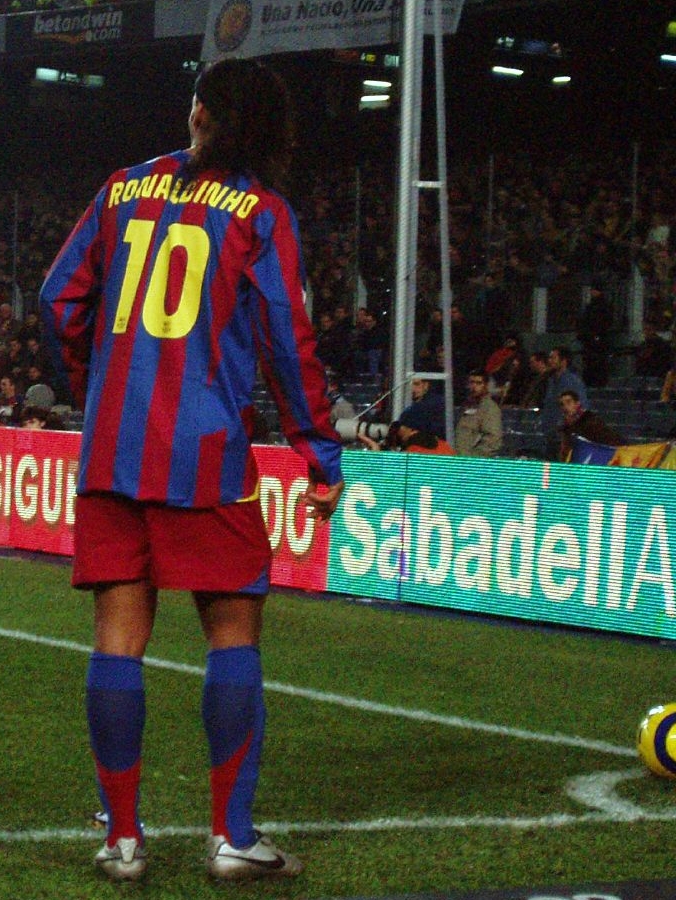Football has never been a fair sport. It has always been a sport where sometimes the best team doesn't win. It's very fickle and history can be made at any moment.
On Friday Uruguayans everywhere celebrate the 60th anniversary of their most improbable win in history as they defeated Brazil 2-1 at the legendary Estadio Maracanã in Rio de Janeiro.
It was supposed to be the crowning achievement of a team that was considered the greatest team to have never won the World Cup. At that time Uruguay were the best footballing nation on the planet if you based it on their international success both pre and post- World War II. The Charrúas, along with Italy were top dogs at the international level's biggest stage.
England might have been unbeaten until 1950, but they were not part of FIFA and would end up getting a humbling lesson at the hands of a US side... but that is another lesson for another time.
Still with that pedigree coming into 1950, Brazil was the overwhelming favorite. Outside of the host nation's 2-2 draw against Switzerland, Brazil won all their matches by a combined 19-1 margin. Brazil outscored Sweden and Spain, the two top European sides of the moment, in the final round by a combined 13-1. For many in the local press, the The match for many was a formality. There was no doubt that the home side would come out triumphant and parade the World Cup trophy in a venue that was being dubbed ¨The Mecca of Futebol¨ as there would be almost 200,000 fans at the stadium watching as history would be made. Or so they thought as no one thought that they would imagine
what happened on that fateful day.
The stage was set as the biggest crowd in World Cup history was set to witness this celebration at the Estadio Maracanã in Rio back on
July 16, 1950. They were facing a Uruguayan side that had to fight more to get to the final round.
Brazil came out in their usual attacking mode with players like Zizinho, Ademir, Chico, and a host of others that continued the tradition of skill and pace that Leonidas made a trademark with the Seleçao prior to World War II. The nucleus of the team was based on the stars of the big teams in Brazil. The top teams from São Paulo as well as Río represented the South Americans' best hope.
Uruguay were no slouches either. The team had stars from some of its biggest clubs such as
Obdulio Varela, an Afro-Uruguayan central defender and midfielder that was the best undisputed leader at Peñarol. During his time with the ¨Manya¨ he led them to six domestic titles. El Jefe Negro ¨The Black Chief¨ was also the undisputed leader of the Uruguayan team as they were crowned South American champions back in 1942. He also holds the distinction of never losing with
La Celeste as captain in his two World Cups. The only match that the team lost in that time was the
semifinal against Hungary in 1954.
"The silence was morbid, sometimes too difficult to bear"- FIFA president Jules Rimet on crowd after the 1950 final
There was also Nacional man Julio Pérez. The right winger was characterized by his great runs and unorthodox leg movement which caused fits to friend and foe alike.
Although Ghiggia got all of the glory, it was Varela that was able to stop the Brazilian attack with his grit and valor. He was the anchor in the middle that shut down a potent offense neutralizing them with pure
Garra Charrúa, a term used starting back in the
1935 Copa América by a Uruguayan journalist when a veteran Celeste side was able to win the title against younger teams like Argentina on will and guts alone for a sport in the Berlin Olympics.
 Uruguayan legend Alcides Ghiggia (Wikimedia)
Uruguayan legend Alcides Ghiggia (Wikimedia)All Brazil needed was a draw to confirm themselves as World Champions for the first time ever. There was just one problem, someone forgot to tell the feisty Uruguayans to go along with the act. For many,
this was a match that changed football and truly started to get the game on the map on a true international level. Their previous performances showed lots of skill but very little collective substances as big wins were lacking.
They were completely overshadowed within South America by their neighbors to the south. Two of their biggest losses in history to date were against Argentina and Uruguay. Their first-ever international was a 3-0 loss to the Albiceleste back in 1914 and Uruguay would beat them 6-0 in the 1920 Copa América held in Chile. Argentina and Uruguay were top dogs in the region as they disputed the final of the inaugural World Cup at the Estadio Centenario in Montevideo; won by the home side 4-2. They also were the two teams that disputed the Copa América title since its inception almost four decades earlier. Their third place finish in France back in 1938 was that turning point for Brazilian football as they finally allowed
After showing their potential in previous World Cups, the post-war era saw the game really take off in Brazil and when they were
selected to host the World Cup, they knew that it was their time to take the next step into the pantheon of greats of world football.
"I didn't like to see those 200,000 fans upset, I did not like to see Rio in darkness and with no celebrations going on. That's life. I was (world) champion and was not completely thrilled about it."- Obdulio Varela
Lineups:
URUGUAY: Máspoli, González, Tejera, Gambetta, Varela, Andrade, Ghiggia, Pérez, Míguez, Schiaffino, Morán.
BRAZIL: Barbosa, Augusto, Danilo, Juvenal, Bauer, Bigode, Friaca, Zizinho, Ademir, Jair, Chico.
The first half ended with a scoreless draw. Although it did subdue the crowd a bit, the result favored the home side. In the 47th minute Friaça wold come into the box and cross the shot past Máspoli and Brazil were 43 minutes away from glory despite scoring in what the Uruguayans considered an offsides.
According to legend Varela mentioned the rallying cry ¨It's time to win¨ and the Uruguayans began attacking the frail Brazilian defense. In the 66th minute a ball would come into Schiaffino and he would equalize. The goal hushed the Maracanã but fans knew that all was still well as Brazil were still champions.
"There were only three people that were able to silence the crowd at the Maracanã- the Pope (John Paul II), Frank Sinatra, and I."- Alcides Ghiggia
Then in the 79th minute, Alcides Ghiggia would make a run up the left wing and pass Bigode. He faked a cross and Brazilian goalkeeper Barbosa cheated as if he was going to cut it off. At that moment, Ghiggia unleashed a shot to the near post that caught Barbosa off-foot. Needless to to say, the Maracanã was stunned.
The final ten minutes were an all-out Brazilian attack which never saw the back of the net. Victory had evaded them and Uruguay had done the impossible.
What happened afterwards...
This match was indeed a turning point for both national teams. The entire nation of Brazil was devastated beyond explanation. There were suicides reported after the match. Even FIFA president Jules Rimet was caught off guard. The president did not prepare a speech for Uruguay. He had only prepared a speech in Portuguese congratulating the Brazilians for their first-ever World Cup title.
According to many historians, Rimet was already on the pitch ready to give the trophy to the Brazilian captain, but Varela would take the trophy from him and protocol was replaced by utter mayhem. Improvisation was befuddled by just utter as Uruguay had done something no one expected- win. Thus the Maracanazo was born and to this day is part of the Latin American football lexicon.
Legendary journalist and founder of Jornal Do Sports Mario Filho, for whom Estadio Marcanã is named after, wrote in his column the following...
“The city closed its windows and submerged in complete mourning. It was as if every Brazilian had lost their most beloved person. Worst of all, it was as if every Brazilian lost their honor and dignity. That is why many vowed on that fateful July 16th that they would never set foot in a football stadium again”.
Many of them might not have, but there were some changes in place for the national team and the scars slowly healed. For starters, they would never wear white again. Barbosa would become the scapegoat and would be the primary culprit for the loss. It was a cross the goalkeeper would have to deal with for the rest of his life. Barbosa mentioned pain he had to live with in an interview he did back in 2000.
"The maximum punishment in Brazil is 30 years imprisonment, but I have been paying, for something I am not even responsible for, by now for 50 years."
The national team would then take on the yellow jerseys and that seemed to be the magical The team would not play an international match for the following two years. They would qualify for the 1954 World Cup, but the team would be dismantled by a dominant Hungarian side 4-2. Brazil would then head to Sweden in 1958 and win for the first time ever as players like Vava, Didi, Mario Zagallo, and a boy named Pelé would change the tradition of the Verdeamarelha forever.
Meanwhile the celebrations in Montevideo were non-stop. According to many sources, there were no celebrations planned. They would participate in nine of the next 14 World Cups; exiting in the first two rounds six times.
Uruguay would reach the semis in 1954 and 1970, but the level of play deteriorated significantly. They lost their two big offensive stars- Ghiggia and Schiaffino- as they would play for Italy after the '54 World Cup. Their international careers with the Azzurri was short-lived as Italy failed to qualify for the first time ever. Uruguayan football would remain mired in past glories as they slowly stopped being World Cup protagonists.
But almost four generations have passed and that match is still collectively remembered by both sides. 60 years after that epic triumph, Uruguayan football once again looks to be on the way up. Could that mean that they will be contenders for the title when then World Cup is played in the land where they last won it?

Uruguay celebrate 60th anniversary of Maracanazo
















 VS.
VS. 


